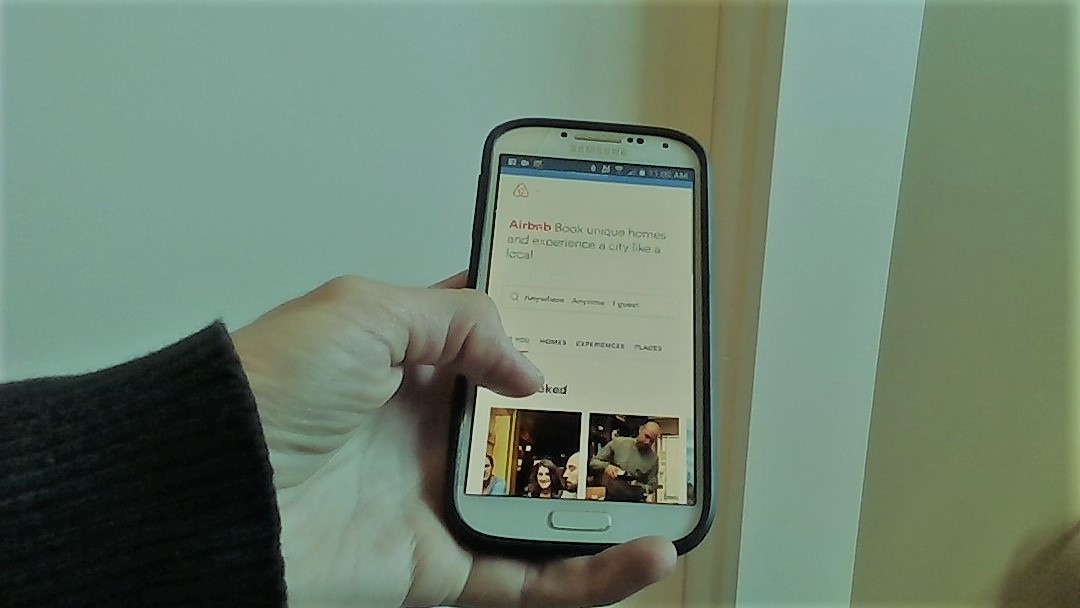I was recently standing in line and the two individuals (who did not appear to know each other) were discussing Airbnb. The one individual had made a positive comment about one she had used on a recent trip. The other retorted (rather harshly) that they were making local hotels suffer here and impacting the tax base. She thought they should all be shut down.
The individual who had been scolded looked like they wanted to say more but just shrugged and turned away. I stayed quiet through the exchange but it had made me thoughtful of the effect of technology. Something which I am often thoughtful about.
I have since had a few conversations with people who were quite engaged and opinionated in this debate. Thus I decided to write a blog on what I think are the impacts of the Airbnb phenomena on local tourism economies. This is different from my normal blogs but it is of interest to me and seems to be of interest to many others.
So let’s start with what is Airbnb?
Airbnb is a website (www.airbnb.ca) or an app that you can use to find short term rentals for various lengths of time all over the world. The “hosts” that offer the accommodation vary. Some are regular people who have a vacation rental or their own place (a house, a condo, duplex etc.) and want earn money on it when they are not using it. Other “hosts” are individuals or corporations that hold the places strictly for investment and use AirBnB as an avenue to get renters.
Whoever the host, the “renter” gets a furnished residence for a short term rental (a night, a weekend or a month) and Airbnb. acts as a way for the exchange to happen including paperwork, deposits and final payments. Airbnb then charges a fee on the exchange.
Let’s first talk about the benefits of this as I have heard them:
The Benefits
Price: General consensus is that the price on Airbnb can be extremely reasonable. Variations do occur but ultimately you may be able to get more bang for your buck from a consumer’s perspective. This is especially the case if you can share the house between groups further reducing your cost.
Amenities: Hotels are great fun. But not as much when you have young children. I have often heard the biggest positives on Airbnb rentals is that you can get child friendly places (some even have baby gates!). When travelling with young children, this can reduce your stress incredibly. You also know you can keep bedtimes and with a living room can still have adult time after the kids are down (not as easy in a one room hotel).
The downside of this from an economic standpoint is that the renters are not people who contribute to the tax base (they don’t own the house and pay property taxes) and they are not staying in local hotels and using local restaurants (or at least not every night). I wanted to consider each of these arguments.
The Costs
Tax Base: The first is that they are not contributing to the tax base (paying property tax). This is true but the owners (called “hosts”) are paying property taxes. Furthermore, there is an argument that if they are able to easily rent out their “vacation” rental the property value goes up, for everybody. They also allow people (locals) who own homes to earn a little extra money when they themselves go on vacation. The hosts do not pay PST – Hotel Tax (in BC) until they own 3 or more rentals however they do pay income tax on their earnings.
Hotels : This one I do agree with. Airbnb offer competition for local hotels and hostels. Does that mean we should not allow them? This seems strange in a democratic and capital society to want to limit competition. Hotels and hostels may have to be more innovative and I am not sure how they will take on this new threat. However, I also may argue that many people I have spoken to, did trips they likely would not have done without having the Airbnb option. Thus it may actually increase tourism without necessarily infringing on hotels. However, I can see how in this area it will be difficult in some ways and force hotels to be more innovative with packages and offerings.
Restaurants: When people have access to a kitchen they are more likely to cook in house. However, they may also be more likely to extend their vacation. Tourists generally will still go out to treat themselves. I also see their could be potentially more money in the budget with lower accommodation charges to eat out / shop while on vacation.
Conclusion
Thus I think the overall benefit of the Airbnb could be quite positive. Though hotels may feel a crunch initially, as with most economics, things will generally ease out over time. One this is for sure, the demand for this service is there and it is not going anywhere! Innovation and creative marketing could ease the bargain and I think more people in town for tourism always helps the local economy.
If you have comments, please add your comments below or email me. I am curious if other people have different thoughts or ideas to add to the conversation.
Virtual Heights Accounting is a CPA and Business Coaching firm located in Rossland, BC. We are a virtual firm focused on using cloud based technologies to reduce the administrative burden of business owners. Focusing on bookkeeping, accounting, business coaching and development with a tech focus. www.vhaccounting.ca. The above represent our own opinions any comments, please comment here or feel free to contact us.





